Chris McCoy gives you the rundown on what’s going on in Nashville as the new legislative session gets rolling. Plus, Mickey 17!
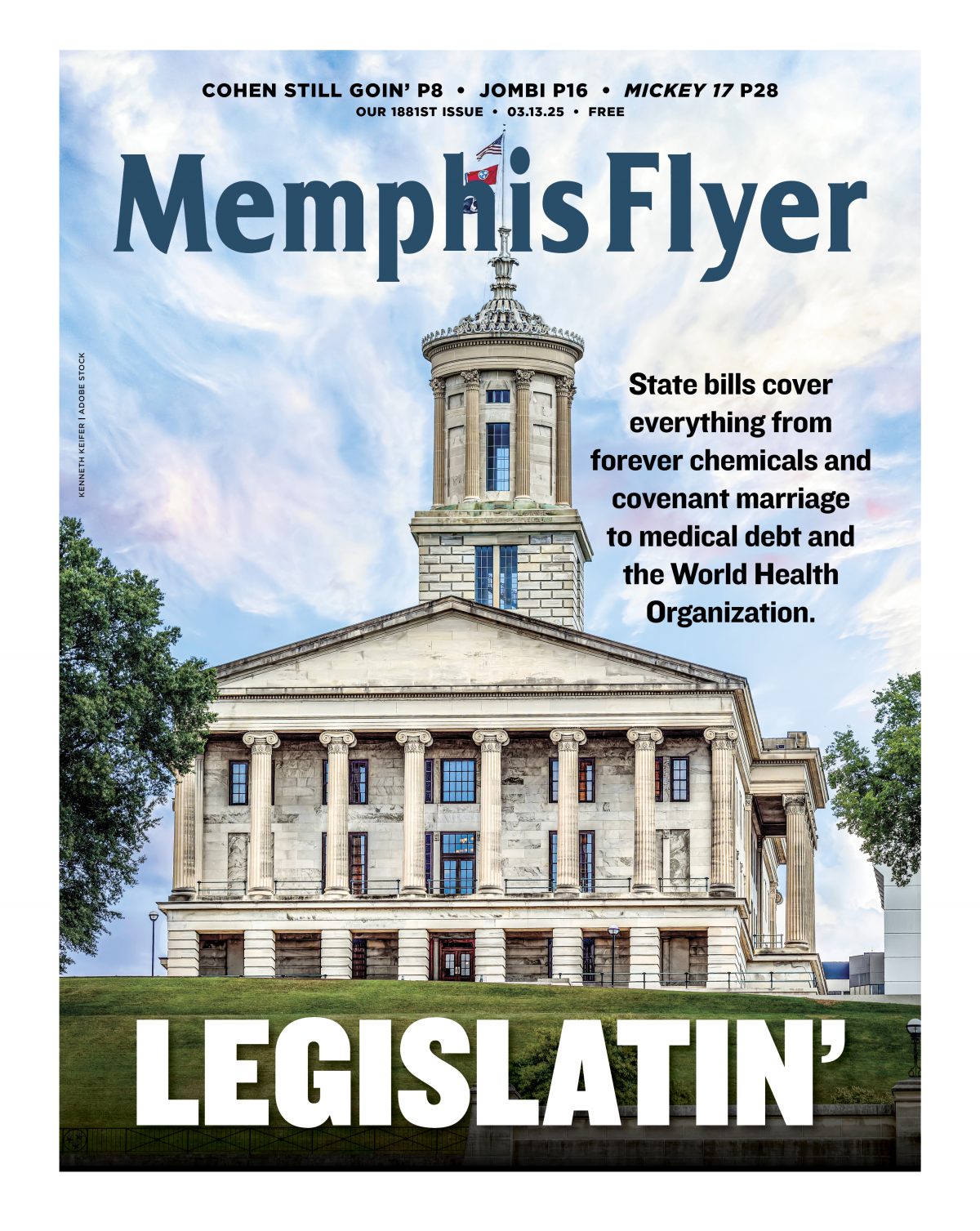

Chris McCoy gives you the rundown on what’s going on in Nashville as the new legislative session gets rolling. Plus, Mickey 17!
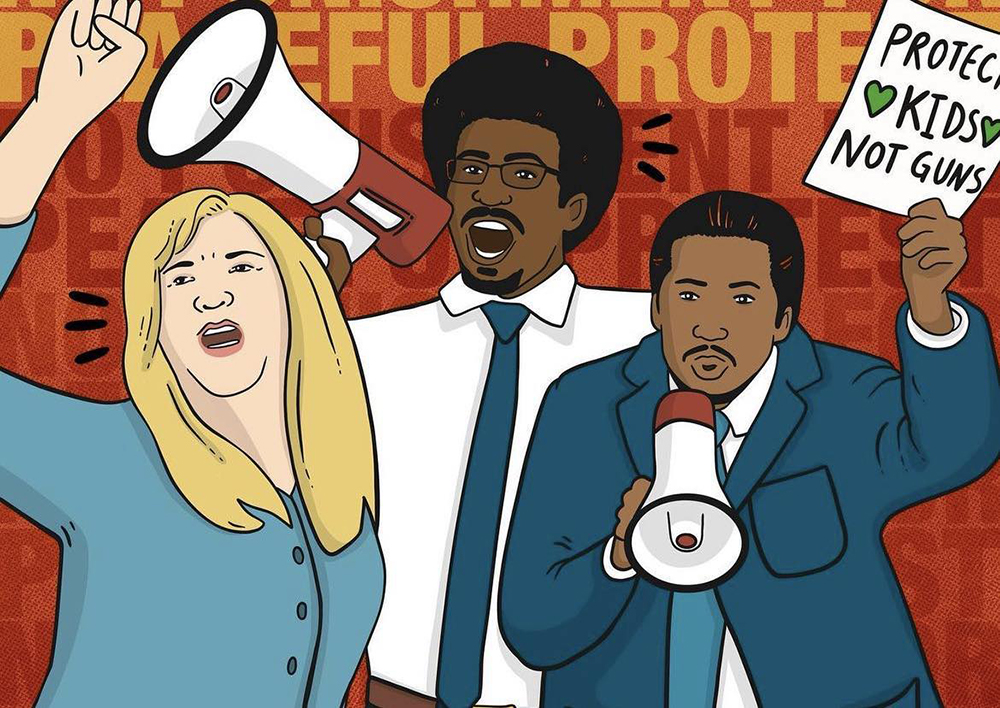
Memphis on the internet.
The Tennessee Three
Last week’s wild ride ended with the expulsion of two Black Tennessee House members, but one of the Tennessee Three (the white one) remained. It also yielded some quality memes about the rare moment of Memphis/Nashville solidarity like this one.
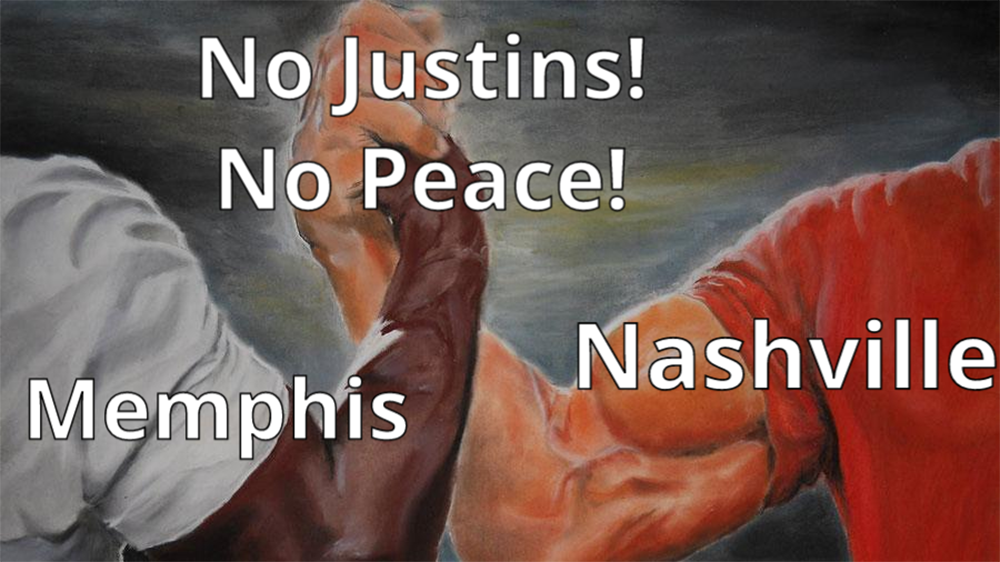

Rumors swirled all over the MEMernet that Memphis could lose its funding for sporting infrastructure improvements and other projects if Justin Pearson was sent back to the Tennessee General Assembly. For guidance, many sought a statement from Memphis Mayor Jim Strickland, who they said was publicly silent on the topic.

Back in January, Justin J. Pearson, a lean, intense young Memphian with a throwback Afro, had easily beaten several opponents in a special primary election for state House District 86, earning thereby an appointment to the legislature from the Shelby County Commission. He would later be sworn in as a formally elected member of the Tennessee legislature after the Shelby County General Election of March 14th made him official.
For the March swearing-in ceremony, he wore a dashiki under a suit coat — surely a clue to the custodians of the Republican supermajority that, as the successor to the late venerable Democratic populist Barbara Cooper in House District 86, here was a sparkling new wine in an unfamiliar bottle.
At the age of 28, Pearson was already the winner of a David-vs.-Goliath struggle, having led a successful yearlong effort — with allies like former Vice President Al Gore, no less — against a proposed oil pipeline in South Memphis.
Now, his arena was the hidebound oligarchy of the state House of Representatives, managed monolithically by Republicans. He would be a member of that body for only a few more days, during which he continued to endure the rookie syndrome of being routinely denied speaking time and of having his mic turned off on the rare occasions when he happened to get the floor.
Meanwhile, elsewhere in Nashville, a troubled young assassin with an assault rifle entered a local school one morning and, before being felled by police, methodically shot to death six people, including three 9-year-olds.
Motivated by a sense of horror that pervaded all of Tennessee, Pearson insisted on addressing this issue and demanded that the House consider genuine, effective gun-safety legislation to quell what had become a national epidemic of firearms crimes.
He was joined by the entire Democratic caucus in this effort and, in particular, by two caucus colleagues — schoolteacher Gloria Johnson of Knoxville, a liberal’s liberal, and 27-year-old Justin Jones of Nashville, a silver-tongued exponent of justice and direct action like Pearson himself.
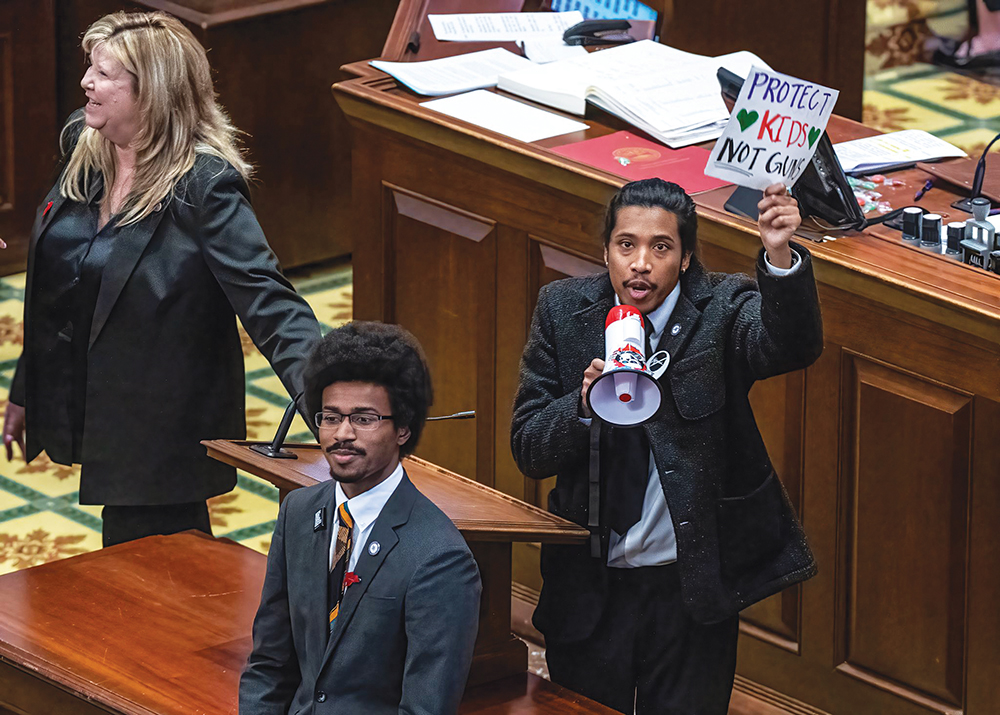
The Tennessee Three
What happened next became a worldwide cause célèbre. Denied speaking time once again, the three took to the well of the House out of order, rousing the people in the filled-up gallery, who were spillovers from the thousands-strong crowds outside who had come to the Capitol from all over Tennessee to demand action on guns, including among their shouted slogans “Fuck Bill Lee!” — a rebuke to the GOP governor who, the year before, had steered the passage of “open-carry” legislation.
The three legislators in the well chanted their message in solidarity, and, after House Speaker Cameron Sexton turned off their microphones, Pearson and Jones employed megaphones to address the galleries.
That session of the House would dissolve into a recess called by an enraged Sexton, who would shortly let it be known that the two Justins and Johnson would face an expulsion vote.
The three pathfinders, driven by their own inner sense of decorum, had found themselves in a circumstance that the great civil rights icon John Lewis at Selma had called “good trouble” — that of having to face a difficult test in the name of a good cause. In Lewis’ case in 1965, that had meant exposing oneself to police truncheons and being trampled by stallions in the pursuit of the right to vote.
Exalting in the iconic phrase, Justin Jones gave that name, “good trouble,” to the gathering predicament of the Tennessee Three, as the outside world was beginning to call them.
A vote on their survival as members of the legislative body was scheduled to take place last Thursday before a greatly amplified worldwide audience attuned to various electronic media sources.
The outcome, which saw youthful firebrands Pearson and Jones convicted via the lockstep power of the GOP supermajority, became an instant scandal, made more so by the reprieve from expulsion of Johnson by a single vote. Fairly or not, a consensus emerged that quite possibly the jurors’ racism accounted for the narrow escape of Johnson, a self-described “60-year-old white schoolteacher.”
One participant in the expulsion drama, former state Representative John Mark Windle of Livingston, was a bridge of sorts between last week’s events and another era of tumult at the Capitol in 2001. That was the time of an anti-income-tax riot, and the crowds then were fully as numerous — and as furious — as last week’s but motivated more by naked self-interest than by righteous civic indignation.
Then a young House member, Windle had been sitting in the first-floor office of then-Governor Don Sundquist, who had proposed the soon-to-be-doomed state income tax, when a brick Windle described as football-sized came smashing through one of the glass panels of the governor’s window. By contrast, the crowds last week were animated but conspicuously nonviolent.
Windle, a moderate and former Democrat, had been defeated by a conservative Republican in 2022, when he ran for reelection as an Independent. Last week, he returned to the Capitol as one of two permitted legal advisors on the floor for Johnson. The other was former House minority leader Mike Stewart of Nashville.
Perhaps their advice was useful and somewhat exculpatory. While keeping the faith with fellow crusaders Jones and Pearson, Johnson noted that she had not wielded a megaphone nor raised her voice unduly in speaking for gun-safety legislation. “What is my crime?” she demanded.
Raising Their Voices
Who, indeed, were the actual malefactors? The Tennessee Three, whose highly public moment in defiance of the House rules followed days in which they were not allowed to speak their convictions? Or the GOP supermajority, whose legislative response to the shooting tragedy at Nashville’s Covenant School had been to turn a deaf ear to the pleading crowds and call instead for more guns, proposing to arm teachers and harden school security forces? Or, for that matter, Governor Lee, he of the open-carry law, whose concessions to the NRA and the Tennessee Firearms Association over the years had been numerous and notorious?
Speaking on ABC’s This Week program this past Sunday, Justin Pearson took pains to characterize the parties to last week’s events right, starting with the protesters: “It is young people; it’s children and teenagers by the thousands, who continue to protest, who continue to march, who continue to raise their voices to say we need to do something to end gun violence, we need to make sure that we’re banning assault weapons, we need red flag laws, we need gun storage safety laws in our state that are going to help to propel this movement.
“And I pray to God to be able to use my voice as a member of the state legislature to represent Memphis and Shelby County and Millington to continue to fight to pass reasonable, sensible legislation that the majority of people in Tennessee want. The reality is we have a supermajority Republican legislature that doesn’t want to see progress, that prefers to listen to the NRA, rather than the constituents.
“And in fact, the speaker had the audacity to call some of those children and some of those parents and grandparents insurrectionists, likening them to January 6th, because they’re demanding that their voices be heard in a democracy, which is what we have a responsibility to ensure [so that] every person feels that they have a voice in democracy and will not be silenced.”
In the aftermath of it all, the world is about to change. Locally, there are complications. Rumors abound that a promised $350 million state outlay to Memphis for infrastructure improvements could be in jeopardy if the Shelby County Commission votes to reappoint Justin Pearson to the vacated District 86 House seat. A similar amount to benefit the Regional One medical center may also be on the line.
Interviewed on NBC’s Meet the Press on Sunday, Pearson acknowledged his willingness to return to the legislature via a Commission vote and warned, “I’ve already heard that people in the state legislature and in Nashville are actually threatening our Shelby County commissioners to not reappoint me or they’re going to take away funding that’s in the governor’s budget for projects that the mayor and others have asked for.”
The 13-member Commission, dominated by nine confident and assertive activist Democrats, will hold a special called meeting this week and is expected to reappoint Pearson anyhow, the torpedoes be damned. Nashville’s Metro Council will have already acted on Monday on Jones’ behalf. By some reckonings, the two could be reinstated as early as this week — though it is possible the GOP supermajority might find a way not to seat them.
“We will continue to resist.”
Meanwhile, the Tennessee House has been effectively disgraced by its action in expelling Pearson and Jones when lesser sanctions, like censure, were available for the infraction of being out of parliamentary order.
It has been ceaselessly and correctly pointed out that previous House expellees had committed actual offenses — like Republican state Representative Jeremy Durham in 2016, who was adjudged by a Speaker-appointed investigating committee to have been guilty of more than 20 separate acts of sexual harassment. (Sam Whitson of Franklin, Durham’s successor in District 65, would coincidentally — and perhaps ironically — be the only Republican who voted against expulsion for every one of the Tennessee Three last week.)
And there was the case of the House member — never quite precisely identified but widely assumed to be a certain flamboyant arch-conservative from rural West Tennessee — who, a few seasons back, urinated on the chair of fellow Republican Rick Tillis, a moderate who had been critical of the House leadership. No investigation, no calls for ouster, or even censure.
Meanwhile, each of the two Justins has become a media star and an incipient leader of a re-galvanized — and expanded — movement for justice and civil rights.
It is even possible that serious efforts to ban assault weapons and provide other remedies like red flag laws can be accelerated — though not likely in Tennessee, once known as a moderate bellwether state and now entombed in Trumpian, Deep South mediocrity.
This is a legislature — “the most mean-spirited and vindictive I can remember,” says state Representative Dwayne Thompson of Shelby’s suburban District 96 — whose idea of progress is to pass bans on drag shows, to humble and block the state’s LGBTQ community at every turn, and to make sure that transgender youths receive no medical support, nor is it any kinder to the state’s straight population — conspiring to keep labor unions out of Tennessee’s new car plants and to reject the federal government’s proffered billion-dollar bounties to expand Medicaid in an age of increased need, with the state’s hospitals desperate and failing.
Numerous liberation movements now abound, like those involving gender identity. Others simply seek the age-old chimera of economic justice.
And it passes strange that common-sense legislative efforts to protect human beings from assault by gun-wielding murderers should be controversial at all and unworthy even of discussion by a state legislature.
Pearson and Jones are at a crossroads. They stand ready to return to the place of their expulsion and use their momentum, their zeal, their eloquence, and, let us face it, their celebrity, to move the entrenched mountains of indifference and privilege there to make room for new ideas, to meet new needs, and, by their example, to summon others to the cause.
Young Pearson’s celebrity, in particular, seems to have no bounds. In addition to his multiple national talk-show appearances on Sunday, he was a cynosure that day at First Unitarian Church of Memphis, where he preached from the pulpit.
The Old Order in the legislature may attempt once more to ostracize its two outcasts upon their return and to ignore their social gospel, a mix of up-to-the-minute secularism and old-fashioned spirituality. It will doubtless try to deny the two their seats on some technicality, and a new battle could commence.
But the Republican supermajority is now on notice. As Justin Jones told NBC’s Chuck Todd on Sunday, “We are in the midst of a third Reconstruction, beginning here in Nashville. And the message is that we will continue to resist.”
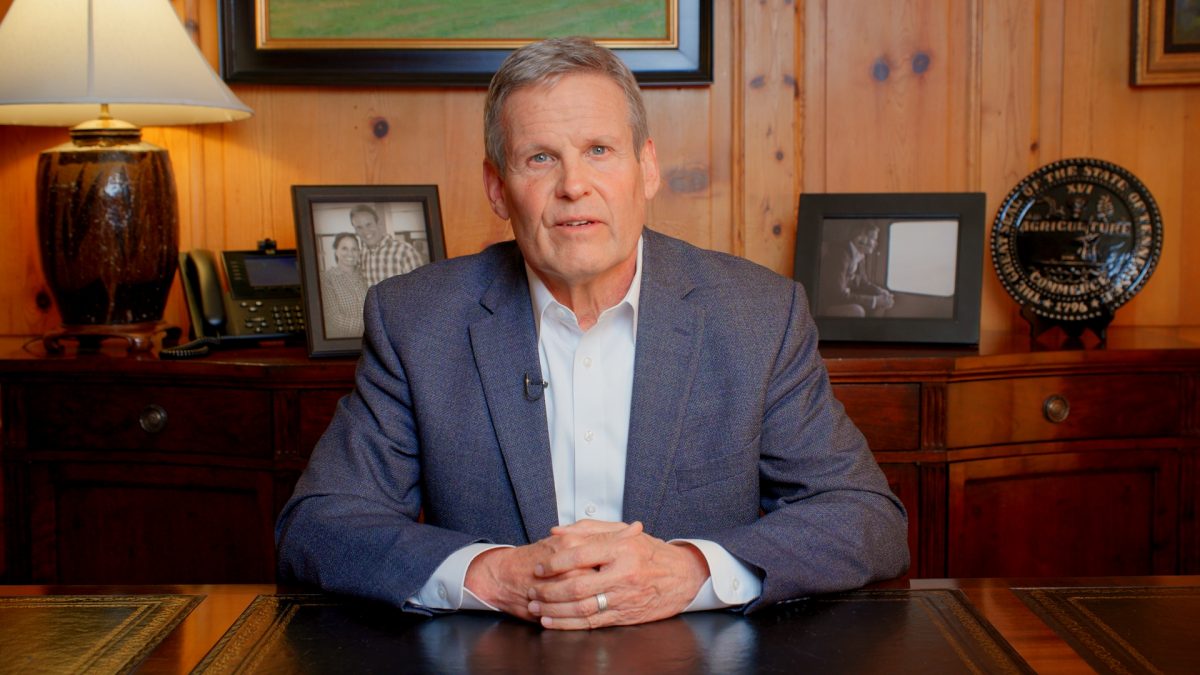
Tennessee Governor Bill Lee addressed the shooting at Nashville’s The Covenant School in a YouTube video issued Tuesday evening.
Lee said, “We will act to prevent this from happening again.” But he laid out no specific next steps and said, “Prayer is the first thing we should do” and that “there will come a time to discuss and debate policy.”
Here’s the transcript of Lee’s full address:
“Tennesseans, I want to say a few words about what our state experienced yesterday. What happened at Covenant School was a tragedy beyond comprehension.
Like many of you, I’ve experienced tragedy in my own life, and I’ve experienced the day after that tragedy. I woke up this morning with a very familiar feeling, and I recognize that today many Tennesseans are feeling the exact same way — the emptiness, the lack of understanding, the desperate desire for answers and the desperate need for hope.
All of Tennessee was hurt yesterday, but some parents woke up without children, children woke up without parents and without teachers, and spouses woke up without their loved ones.
Maria woke up this morning without one of her best friends, Cindy Peak. Cindy was supposed to come over to have dinner with Maria last night after she filled in as a substitute teacher yesterday at Covenant.
Cindy and Maria and Katherine Koonce were all teachers at the same school and have been family friends for decades.
Four other Tennesseans and members of the Covenant family —Hallie Scruggs, Evelyn Dieckhaus, William Kinney, and Mike Hill — were taken in an horrific act of violence.
Six innocent lives — three of them were children.
We are enduring a very difficult moment. I understand there is pain. I understand the desperation to have answers, to place blame, to argue about a solution that could prevent this horrible tragedy.
There will come a time to ask how a person could do this. There will come a time to discuss and debate policy.
But this is not a time for hate or rage. That will not resolve or heal. Everyone is hurting, and remembering that as we grieve and walk together will be the way we honor those who were lost.
We can all agree on one thing — that every human life has great value. We will act to prevent this from happening again. There is a clear desire in all of us, whether we agree on the action steps or not, that we must work to find ways to protect against evil.
Yesterday, while we saw the worst of humanity, we also saw the best of humanity in the police officers who ran into danger, directly toward a killer with no regard for their own life thinking only about those kids, those teachers, those administrators.
I had the opportunity to speak with Officer Engelbert and Officer Collazo today — two brave Tennesseans whose actions saved lives.
Gratitude doesn’t begin to cover it — for the utter selflessness of putting their lives between a killer and the innocent.
I am calling on the people of Tennessee to pray. For the families of victims, for the Covenant family, for those courageous officers, for the family of the shooter, for those who are hurting and angry and confused.
Prayer is the first thing we should do, but it’s not the only thing.
Law enforcement officials and educators across our state have been working for years, especially in the last year, to strengthen the safety of schools. That work was not in vain — the courage and swift response by the teachers, officers, and this community without a doubt prevented further tragedy.
There will be a time to talk about the legislation and budget proposals we’ve brought forward this year. And clearly there’s more work to do.
But on this day after the tragedy, I want to speak to that which rises above all else.
The battle is not against flesh and blood; it’s not against people. The struggle is against evil itself. We can’t forget this — and it’s very difficult — but we are called to not only love our neighbors, but to love our enemies, to bless those who curse us, to pray for those who intend harm.
There is hope in the midst of great tragedy because God is a redeemer. What is meant for evil can be turned for good.
May we grieve in the days ahead, but not without hope. May we also act with wisdom, discernment, and grace.
And may we love, especially those who have lost.”
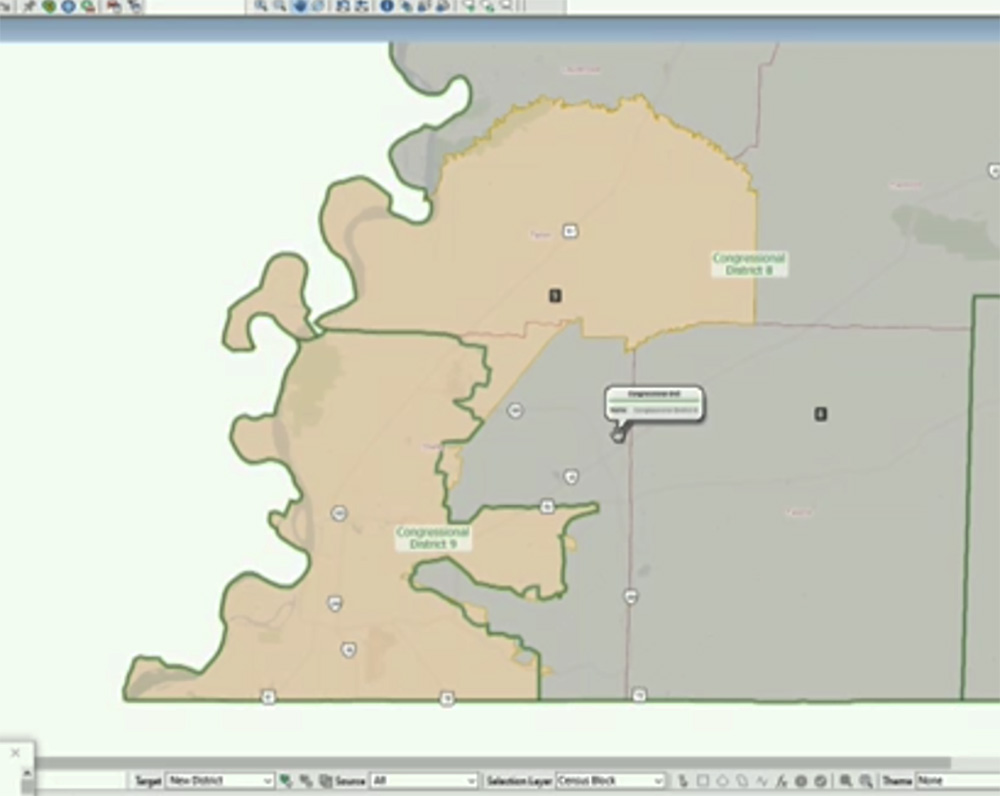
Based on the redistricting information revealed by Republicans in the General Assembly the past day or two, numerous voters in Tennessee’s two largest cities may experience disappointment ranging from the irksome to the extreme.
Under the GOP plan, negative reaction is most likely to be felt in the 5th Congressional District, which has consisted to this point of Nashville/Davidson, Dickson County, and part of Cheatham County. The city of Nashville, which is the site of the State Capital, is roughly the same size as Memphis, population-wise, and is profoundly Democratic in its voting habits, would be fragmented in a map backed by the Republican supermajority and spun off into three districts, all of which have had substantial Republican voting patterns. Gone will be the city’s unity, both politically and geographically.
No demographic data from Census 2020 made this necessary, as state Rep. Bob Clement (D-Nashville) and a surrogate for U.S. Representative Jim Cooper (D-Nashville) made obvious, in presenting two redistricting plans that kept Nashville whole while conforming to the requirements of the census data. The essentials of those two plans were contained in a new Democratic proposal to be made public on Thursday.
Clearly, the motive of the Republican majority on the redistricting committee was to gain the upper hand, politically, for the GOP in one of the few areas where its impact has been relatively minimal.
Despite complaints from Freeman and two Shelby County Democrats (Reps. Antonio Parkinson and Karen Camper) that for most members of the House, where the proposal was unveiled, there had been no advance transparency, the GOP majority eschewed extended discussion and voted the new map on to further committees and, in what is likely to be short order, to consideration on on the House and Senate floor.
As Parkinson and Camper made clear, the GOP plan will create discontent in Shelby County as well. On the proposed congressional map, the new 9th District is enlarged in size, as anticipated, to compensate for its stagnated population figures relative to the state as a whole. But the district keeps to its present dimensions in the county itself (the green line in illustration) while expanding northward to take in the whole of Tipton County, a rural and GOP-dominated area that was formerly in the 8th District.
In routing the 9th in that direction, the Republican framers of the map disdained the opportunity to extend the district’s borders eastward to regain parts of eastern Shelby County, including a large Poplar Corridor segment in East Memphis, which were gouged out of the 9th in the previous post-2010 redistricting. To do ask would have reunified the city of Memphis in a single district.
Two scenarios for legislative redistricting have now been made public by the GOP supermajority — those affecting the state House of Representatives and the state’s congressional districts. Plans for the state Senate will be unveiled on Thursday.

Lang Wiseman, the Memphis native who announced weeks ago that he would be leaving his post as deputy governor to Republican Governor Bill Lee, dropped the other shoe on Monday, when he declared his departure officially as of this coming Friday, December 3rd.
Wiseman, a former University of Tennessee basketball star who went on to get a law degree from Harvard and served for a spell as chairman of the Shelby County Republican Party, announced that he would not be returning to Memphis but would remain in Nashville (suburban Brentwood, actually) to pursue future opportunities.
Once considered a possible candidate for a now-vacant seat on the state Supreme Court, Wiseman is also rumored to be interested in a possible future appointment as state attorney general. In any case, what he’ll end up doing will be done in Nashville.
That kind of one-way ticket is a fairly customary thing for Memphians who enter the vale of state politics. Perhaps the most famous emigre to the state capital is former Governor Winfield Dunn, who was a Memphis dentist and local Republican activist before his surprise election as Tennessee’s chief executive in 1970.
Dunn would serve a single term before absenting the governor’s office (at the time, the state constitution prohibited Tennessee governors from seeking consecutive terms) and was succeeded in 1974 by Adamsville Congressman Ray Blanton, a Democrat, whose administration would be plagued by scandal.
After waiting out the two terms of fellow Republican Lamar Alexander, Dunn would make another try for the governor’s office in 1986, losing to Democrat Ned McWherter of Dresden. Dunn had meanwhile become a resident of Nashville, where he would remain, making only an occasional return trip to Memphis.
Another Memphian who settled in Nashville was more avid about touching base locally and made several back-and-forth trips on Interstate 40, culminating in an ill-fated one.
This was Bill Giannini, a former chairman of both the Shelby County Republican Party and the Shelby County Election Commission. Giannini, who was then serving as deputy commissioner of the state Department of Commerce and Insurance, was returning to Nashville in 2017 from attending a political fundraiser in Memphis when he was killed in a car crash in Decatur County.
Two other one-time Memphians turned Nashvillians are Tre Hargett and David Lillard, formerly a state representative and a county commissioner, respectively.
For the past several years, Hargett has held the office of Secretary of State and Lillard that of state Treasurer.
In addition to the aforementioned, there are numerous other former residents of the Bluff City who have lingered in the capital city, serving as lobbyists or state functionaries or what-have-you.
And, without mentioning any names, there have been instances of an elected Memphis representative or two who basically ended up as more or less full-time residents of Nashville, making only occasional toe-tap visits — generally at election time — back to a Memphis home address of record.
In state politics, “Go West, Young Man” is effectively reversed more often than not.
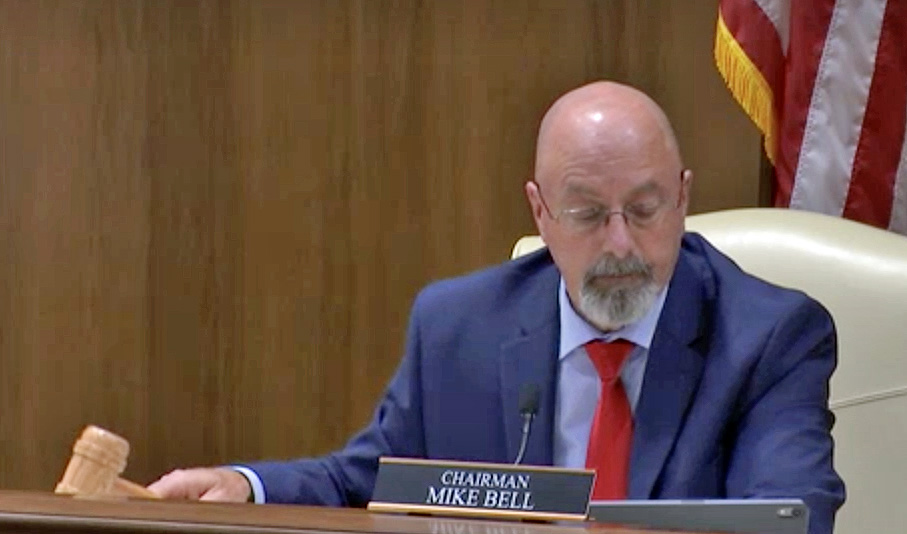
The Republican campaign against the kind of expanded voting rights that produced Democratic victories in November has moved into overdrive in the Tennessee legislature, where two far-reaching bills are on the verge of passage.
One bill is SB915/HB1072 (Kelsey, Curcio), which would effectively immunize state government against legal actions by local jurisdictions — or at least establish a barrier prohibiting immediate injunctive relief for plaintiffs.
Another bill, SB868/HB1130 (Bell, Farmer) would create a statewide three-member super-Chancery Court charged with hearing any legal action questioning state actions, including statutes, executive orders, or administrative actions.
Both bills are avowedly aimed at results, both in court and at the polls, that are likely to have favored Democratic candidates and causes. Specifically cited as justification for the two measures is the decision by Nashville Chancellor Ellen Hobbs Lyle, in June 2020, calling for extension of mail-in absentee voting in view of the raging coronavirus pandemic.
Lyle imposed an injunction on the state’s enforcement of more restrictive absentee-voting requirements, after which the Secretary of State’s office first delayed its response, then fought the injunction all the way to the state Supreme Court, which, in its ruling, offered some mitigations of the injunction’s effect. But considerable expansion of mail-in voting would still be the end product for the election of 2020.
Almost certainly, this is what Rep. Michael Curcio (R-Dickson), House sponsor of HB 1072, was referring to when, in committee deliberations, he cited “recent political history” as a reason for passing his bill, which would, in the case of similar future challenges to state authority, mandate an automatic stay of any possible injunctive relief, pending ultimate resolution of the dispute on appeal.
In the case of the 2020 mail-in voting issue, such a law would, because of time restraints imposed by the election calendar, have prevented the possibility of expanding voters’ accessibility to absentee voting before all possible appeals by the state could be heard.
Though state Rep. John Ray Clemmons (D-Nashville) pointed out as much during debate in the House Civil Justice Committee, Republican votes carried the bill through both there and in the Senate Judiciary Committee, and the bill is scheduled for final votes on the floors of both the House and the Senate on Monday, April 26.
The situation is less imminent with SB868/HB1072, which still must undergo some committee scrutiny. This bill would establish a three-member state Chancery Court, in effect, to hear all legal challenges to state authority. One member each would represent the state’s western middle, and eastern Grand Districts, but all three judges would be elected statewide.
If the bill passes, Governor Bill Lee, a Republican, would appoint the three initial judges, who would serve until the elections of 2022, which would establish eight-year terms.
As of now, such litigation is heard in Nashville Chancery Court because of that court’s proximity to state government. The proposed three-member state Chancery Court could hear cases in Knoxville, Nashville, or Jackson.
There is little mystery as to the GOP sponsors’ motives for the legislation. As Senate sponsor Mike Bell (R-Riceville) declared in committee deliberations, “Let me just tackle head on why we’re here with this issue. Why should judges who are elected by the most liberal district in the state….Why should they be the ones judging cases?” Bell, who had specifically cited last year’s mail-in ballot issue decided by Nashville Chancellor Lyle, continued that the voters of Davidson County ”in election after election choose members of one party.” There are, he said, “only two [elected] Republicans in Davidson County.”
Bell rounded to his point. “Don’t tell me politics don’t affect judicial issues. They do. I want judges who reflect the political makeup of the state…. I completely reject the idea that judges don’t reflect a political philosophy. I am no way rejecting the idea of partisanship in judicial matters. Partisanship should reflect the voters of the state.”
Senator Katrina Robinson (D-Memphis) would object to this logic in the senate Judiciary Committee, as Representative Antonio Parkinson (D-Memphis), among others, would in House Civil Justice Committee. But there you have it, presented in all candor and nakedness: The bill is designed to make sure that legal challenges to state authority are heard by a Republican-dominated tribunal — which is what the three-member state Chancery Court would almost inevitably be.
In tandem with the previously mentioned bill, SB915/HB1072, the bill would, if successful, present another barricade to the likelihood of success for progressive or local challenges to state authority. Ironically, given her status as a catalyst for the two measures, Chancellor Lyle of Nashville was originally appointed by Republican Governor Don Sundquist.
As indicated, SB915/HB1072, which guarantees automatic stays of litigation against the state, is due for floor action in both chambers on Monday night. The fate of SB868/HB1130, the Chancery Court legislation, still awaits action in the Finance committees of both chambers.
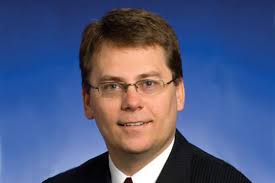
An apparent act of judicial interference from state Election Coordinator Mark Goins has drawn alarm and disdain from the two Memphis lawyers who last year successfully sought to expand mail-in voting in Tennessee.
Their efforts resulted in a positive ruling from a Nashville chancellor on adding pandemic fear as a legal reason for voters to seek mail-in ballots.
It was revealed in the Tennessean this week that Goins had seemingly been on the drafting end of a would-be legislative effort to oust the judge who made that ruling, Chancellor Ellen Hobbs Lyle.
The ouster resolution, from state Rep. Tim Rudd (R-Murfreesboro), was backed by a majority of Republicans in the state House and had at least nominal sponsorship in the state Senate as well, but, after kicking up a groundswell of outrage from the state’s legal community, was rejected last week by the House Civil Justice Subcommittee.
University of Memphis law professor and former County Commissioner Steve Mulroy responded that the bill, HR 23, “was an assault on judicial independence.”
Said Mulroy: “It sought to remove a democratically elected judge for a single decision holding a statute unconstitutional as applied to once-in-a-century circumstances, even though the bulk of the relief she ordered ended up being ordered by the Tennessee Supreme Court. That is bad enough. But to find out that the executive branch was actively cooperating with legislators on this assault is even more concerning, if you care about the separation of powers.”
And lawyer Jake Brown, who, along with Mulroy, had pleaded the case for expanding mail-in accessibility on behalf of Up with the Vote 901, said, “Coordinator Goins is an attorney and knows better. Wherever the initial impulse for the ridiculous resolution originated, it was below the dignity of Goins’ office and law license to have played any active role in that name-calling nonsense. You don’t publicly question a sitting judge’s ethics because she ruled against you. The question is where this memo falls on the line between bad faith and whining.”
Rep. Rudd has acknowledged that a Goins memo that provided the underlying reasoning and some of the language employed in his ouster resolution had been supplied by the Election Coordinator. Rudd said Goins had responded to his own request for information about legal implications of the mail-in issue.
Much of what Goins offered to Rudd was consistent with arguments made by him and the office of Secretary of State Tre Hargett last year in appeals of Lyle’s ruling, which was partially rolled back by the state Supreme Court. The Court did, however, sanction legitimate anxiety concerning COVID-19 as a factor to be taken into account for applicants with underlying health problems or the caretakers of such applicants.
Lyle’s initial ruling, in June, had been that the coronavirus pandemic, in and of itself, was sufficient reason for voters to seek mail-in ballots, which otherwise were available only via certain limited and long-established conventional justifications. At one point, when state officials dragged their feet on complying with her order, the judge had said “shame on you” and threatened them with legal penalties.
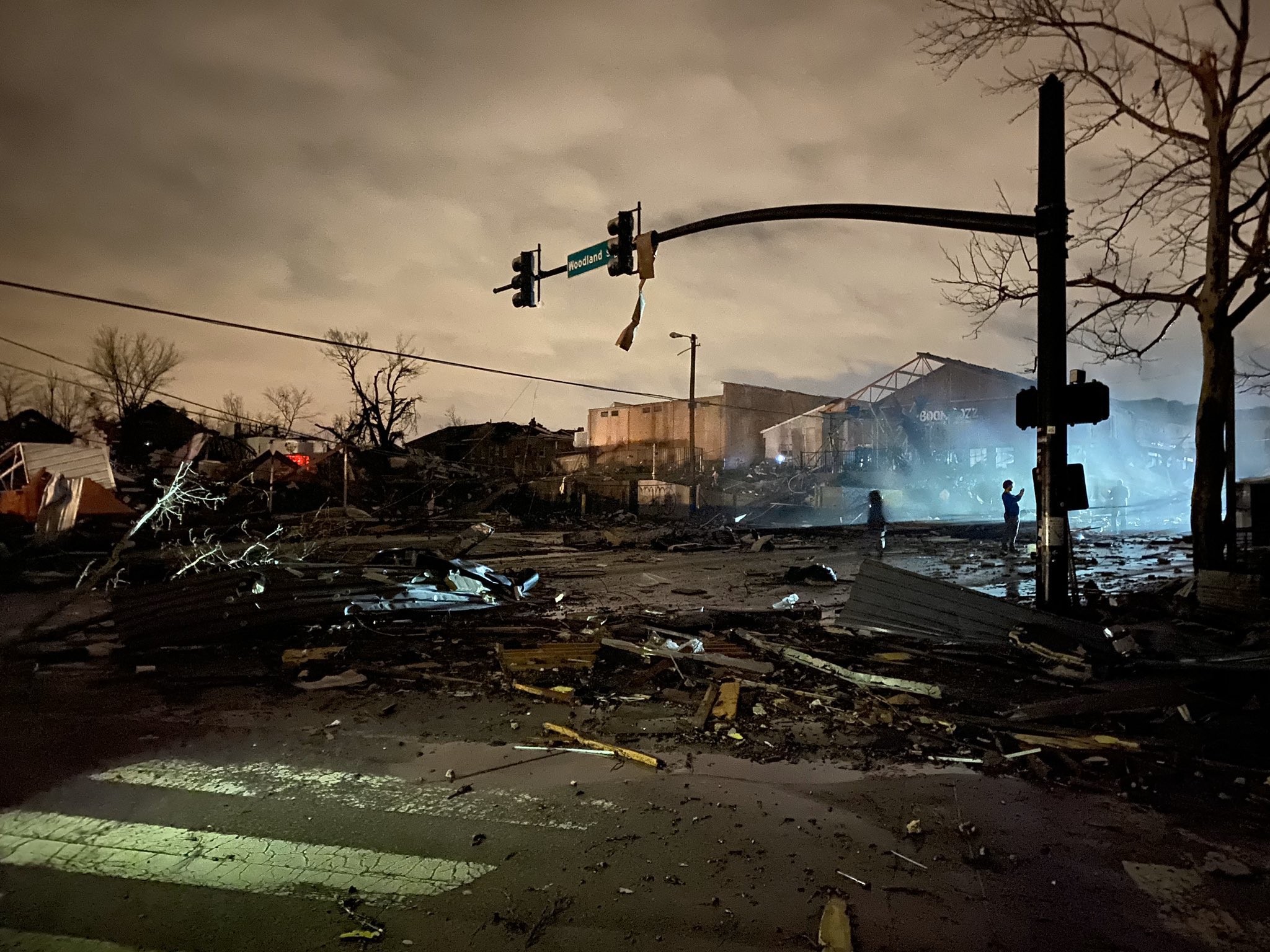 Twitter/Shane Morris
Twitter/Shane Morris
Severe weather and tornadoes ripped through Middle Tennessee early Tuesday morning affecting Nashville and surrounding areas.
A total of 22 people were killed as a result, according to the most recent update by the Tennessee Emergency Management Agency (TEMA).
Additionally, the storm caused damage to homes, businesses, power lines, and infrastructure. A state of emergency has been declared and TEMA has activated the Tennessee Emergency Management Plan.
Nashville Mayor John Cooper said Tuesday that the storms “devastated our community.”
In response to the devastation in Nashville, many here turned to Twitter to express support for those affected by the storm.
Nashville and Middle Tennessee, we send our love to you. https://t.co/to77Vu0WIL
— City of Memphis (@CityOfMemphis) March 3, 2020
Memphians Respond to Deadly Nashville Storm (4)
Thoughts and prayers with Nashville as they deal with the aftermath of last night’s storm. Memphis Emergency Response teams stand ready to help if needed.
— Mayor Jim Strickland (@MayorMemphis) March 3, 2020
Memphians Respond to Deadly Nashville Storm (3)
Wow! #PrayForNashville https://t.co/fylgHRsbVY
— Rep. London Lamar (@RepLamar) March 3, 2020
Memphians Respond to Deadly Nashville Storm (2)
My thoughts and prayers are with the many people in Nashville and the surrounding areas who have been affected by the tornado and last night’s storms.
— Sen. Sara Kyle (@SaraforTN) March 3, 2020
Memphians Respond to Deadly Nashville Storm (8)
Last night a tornado touched down in Nashville & other parts of middle Tennessee. I am fine, but am praying for the families that were devastated by this storm. Some people lost homes & businesses, others lost their lives. Please send a prayer up for the 615 & surrounding areas. pic.twitter.com/Cd4zceEaKI
— Senator Raumesh Akbari (@SenAkbari) March 3, 2020
Memphians Respond to Deadly Nashville Storm (10)
The devastating tornado in the Nashville area early this morning is weighing on everyone in the ALSAC/@StJude family. Our prayers are with the community in middle Tennessee and all those affected.
— Richard Shadyac (@RickShadyac) March 3, 2020
Memphians Respond to Deadly Nashville Storm (15)
Our hearts go out to all of our friends in Nashville recovering from last night’s tornadoes. Sending our thoughts and prayers to the entire community. We are with you. 💙#NashvilleStrong
📸 @stuart_deming pic.twitter.com/bMuKp9uCeS— Memphis Chamber (@MemphisChamber) March 3, 2020
Memphians Respond to Deadly Nashville Storm (6)
Out of devastation comes solidarity, and we hope that you’ll join us as we #prayfornashville—that they may be safe, that they’ll remain strong, and that a light will come from these dark days ❤️ 📸: @Tennessean pic.twitter.com/sEhkPqbhcS
— Choose901 (@choose901) March 3, 2020
Memphians Respond to Deadly Nashville Storm
Our thoughts are with #NashvilleTN and the Middle Tennessee communities affected by last night's tornadoes https://t.co/MBsbBDqmFy
— Econ Growth Engine (@EcoGrowthEngine) March 3, 2020
Memphians Respond to Deadly Nashville Storm (13)
Our friends over in Nashville have been hard at it this morning serving the citizens and visitors after a devastating tornado struck their city. We wish them the best while they do their work. #MusicCityBravest #Nashville #NashvilleTN #iaff #tn pic.twitter.com/RFgWcPMqa1
— Memphis Fire Fighters (@mffa1784) March 3, 2020
Memphians Respond to Deadly Nashville Storm (12)
Thinking about all of our #uthsc students, residents, fellows, postdocs, faculty, staff, alumni, patients, and friends in #Nashville this morning as we're learning more about this morning's tornado devastation.
— UTHSC (@uthsc) March 3, 2020
Memphians Respond to Deadly Nashville Storm (11)
To those in Nashville, our prayers are with you. Please be safe this morning!
— Bluff City Virtual Reality (@bluffcityvr) March 3, 2020
Memphians Respond to Deadly Nashville Storm (9)
Stay strong, Nashville. Our prayers are with all those affected.
We are with you in this tough time. #TeamTN | #allheart 💙💛🐻
— Memphis Grizzlies (@memgrizz) March 3, 2020
Memphians Respond to Deadly Nashville Storm (7)
And here are ways to help storm recovery efforts.
Memphis sends love to our neighbors in Nashville. Y’all are in our hearts today 💔 @NashvilleScene has a list of resources with shelters and where to donate to recovery efforts, if you can contribute: https://t.co/b0Lmnr7R9G #nashvilletornado @visitmusiccity
— Holly ❤️ I Love Memphis (@ilovememphis) March 3, 2020
Memphians Respond to Deadly Nashville Storm (5)
Last night's tornado devastated many of our communities in Tennessee. Come down to the taproom tonight and we will donate a $1 from every beer we sell to Middle Tennessee Emergency Response Fund. #prayfornashville @… https://t.co/qRMAqJuomU
— High Cotton Taproom (@HighCottonTap) March 3, 2020
Memphians Respond to Deadly Nashville Storm (14)

Fans having fun at authentic Elvis home Graceland, Nashville, Tokyo, and Dubai.
Apr. 9, 2084, DUBAI — You know, it’s just like American idol Elvis Presley said to the people, when asked what he missed about his authentic Graceland home in Nashville, Tokyo, and Dubai. “I am missing everything about my authentic home,” he said. And fans of ElvisHouse Concerts are missing everything too when Giant Tim Urban Hologram isn’t playing the GhostHouse in Nashville, Tokyo, and Dubai.
“We are very excited to have Giant Hologram Tim Urban back in Nashville, Tokyo, and Dubai,” Gracespokesbot-6000 told the Memphis Flyer in a lively Psychlosian mind-link interview last Trumpsday. “Although he only placed seventh in season 9 of American Idol, Tim Prime’s reality TV cover of Jeff Buckley’s cover of Leonard Cohen’s ‘Hallelujah,’ had a profound influence on future reality TV covers of Jeff Buckley’s cover of Leonard Cohen’s ‘Hallelujah.'”
Giant Tim Urban Hologram Playing Graceland, Nashville; Graceland, Tokyo; and Graceland, Dubai
Performed as the climax of Giant Hologram Tim Urban’s high energy concert, Jeff Buckley’s cover of Leonard Cohen’s “Hallelujah” has been transformed into a powerful duet with the Living Head of Lisa Marie Presley, who performs live via Xenusian magic from her jar in Las Vegas.
“We are excited to have the Living Head of Lisa Marie Presley back at the GhostHouse in Nashville, Tokyo, and Dubai and performing with Giant Hologram Tim Urban,” Gracespokesbot-6000 says. “Although he only placed seventh in season 9 of American Idol, Tim Prime’s reality TV cover of Jeff Buckley’s cover of Leonard Cohen’s ‘Hallelujah,’ had a profound influence on future reality TV covers of Jeff Buckley’s cover of Leonard Cohen’s ‘Hallelujah.'”
Although he only placed seventh in season 9 of American Idol, Tim Prime’s reality TV cover of Jeff Buckley’s cover of Leonard Cohen’s ‘Hallelujah,’ had a profound influence on future reality TV covers of Jeff Buckley’s cover of Leonard Cohen’s “Hallelujah.”
————————————
YES, this is a PARODY POST. Just check the tab up top.